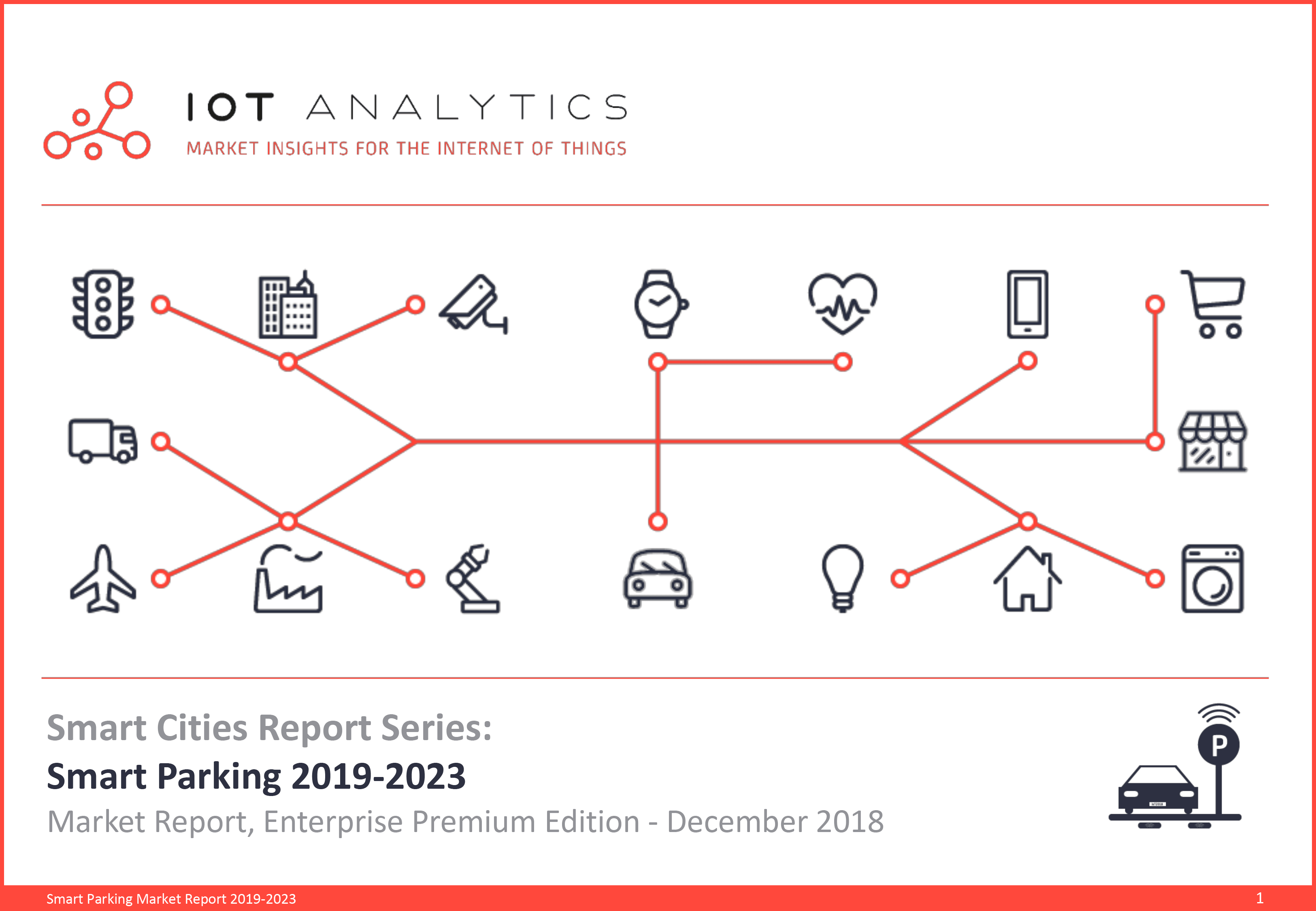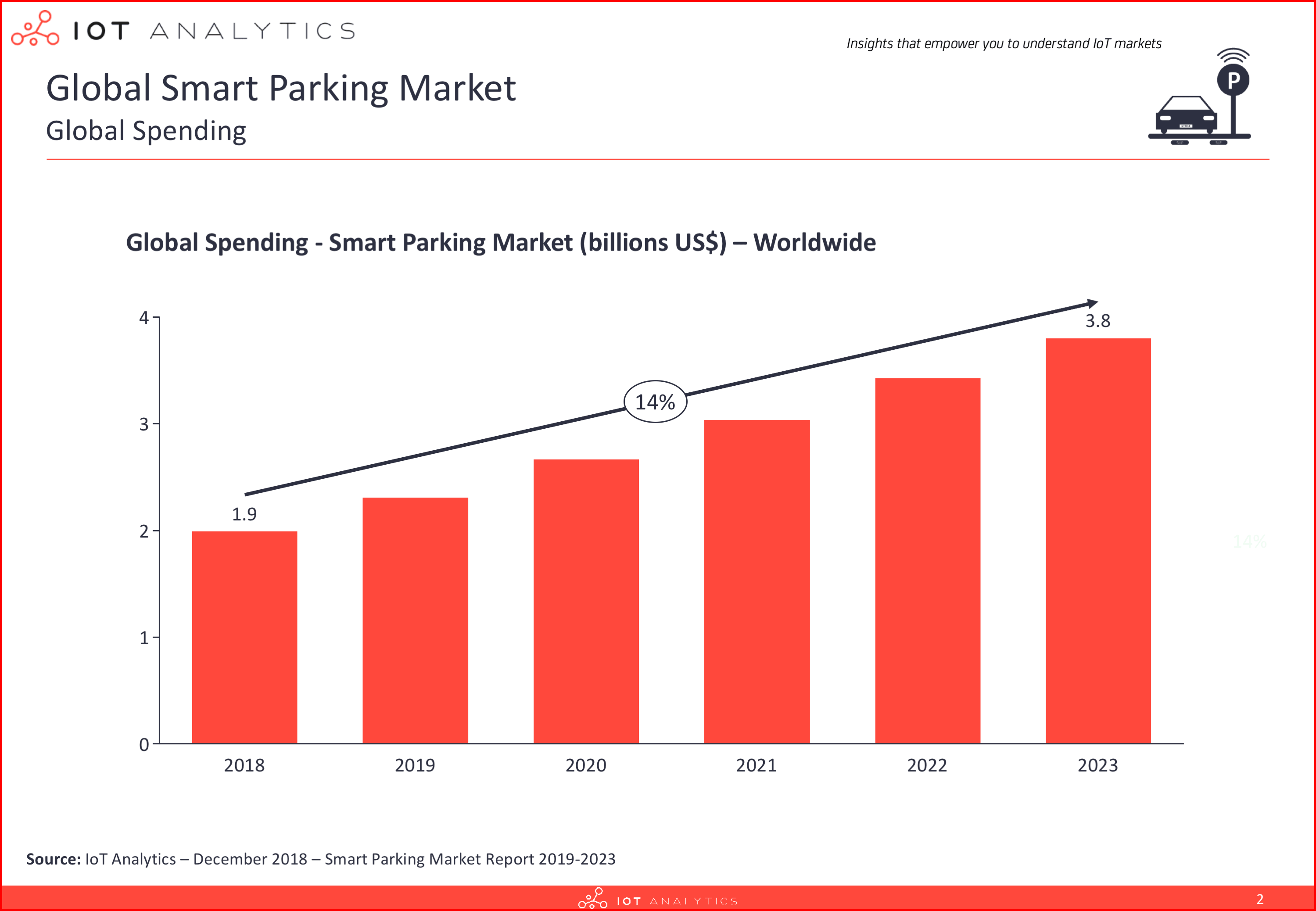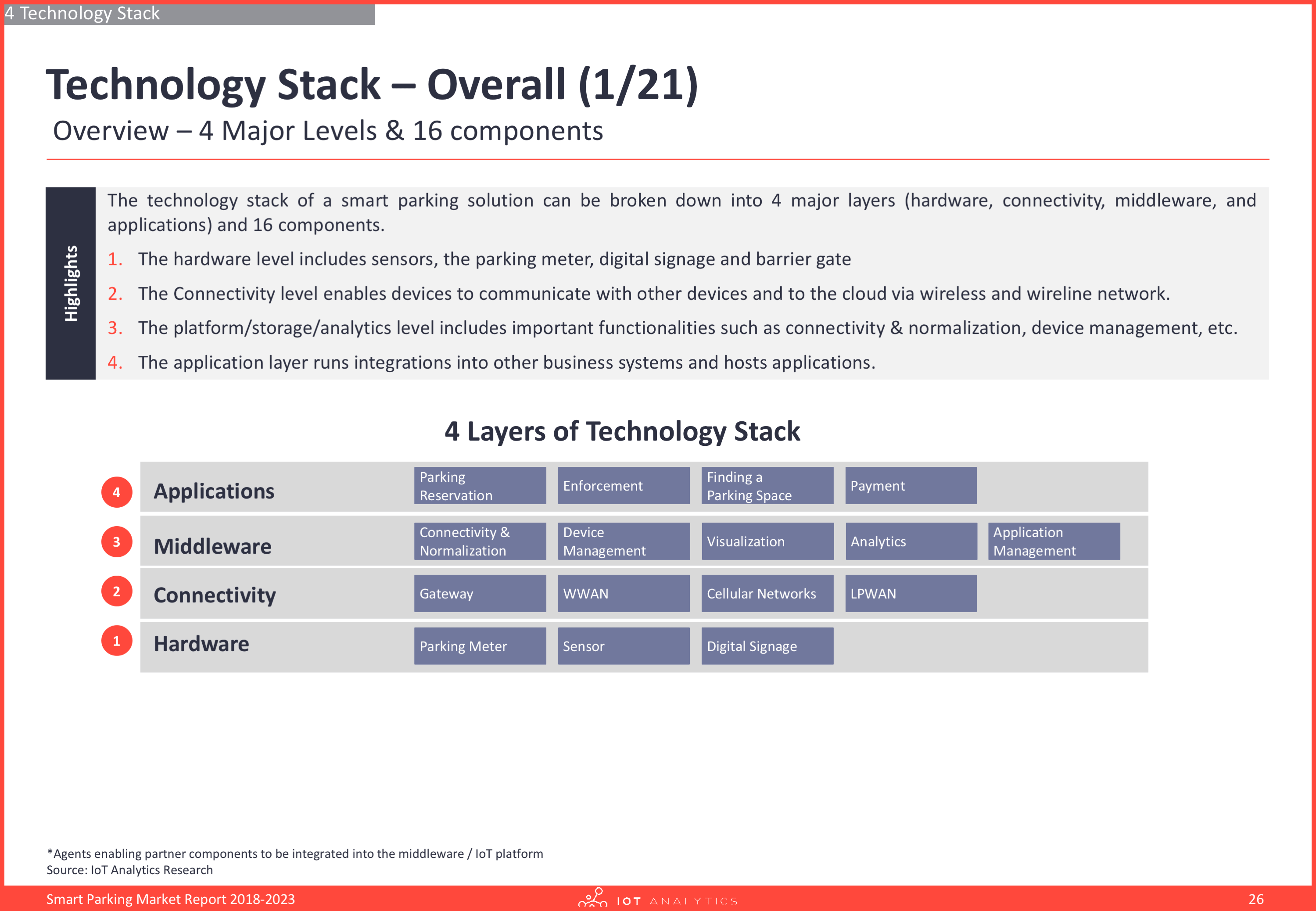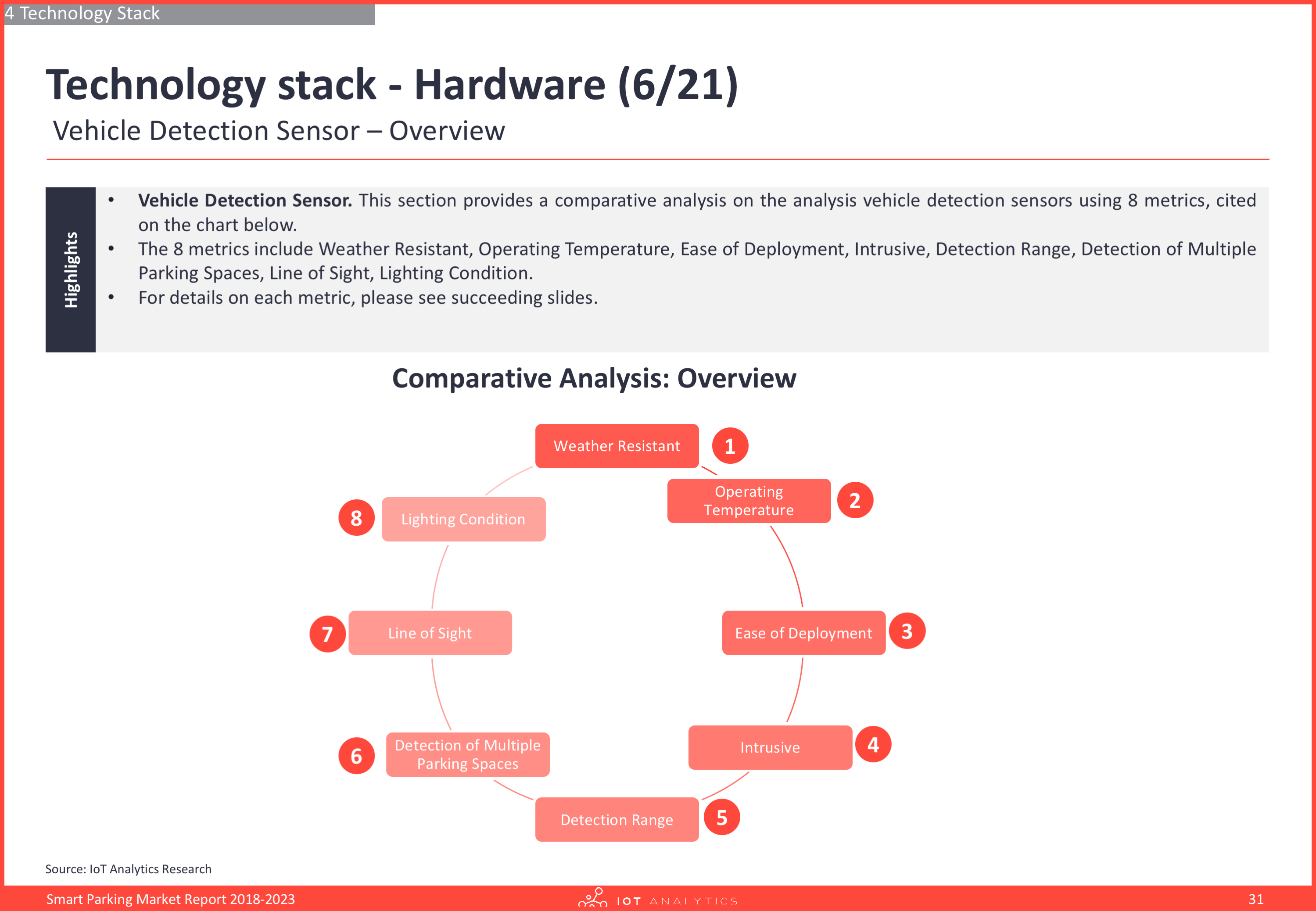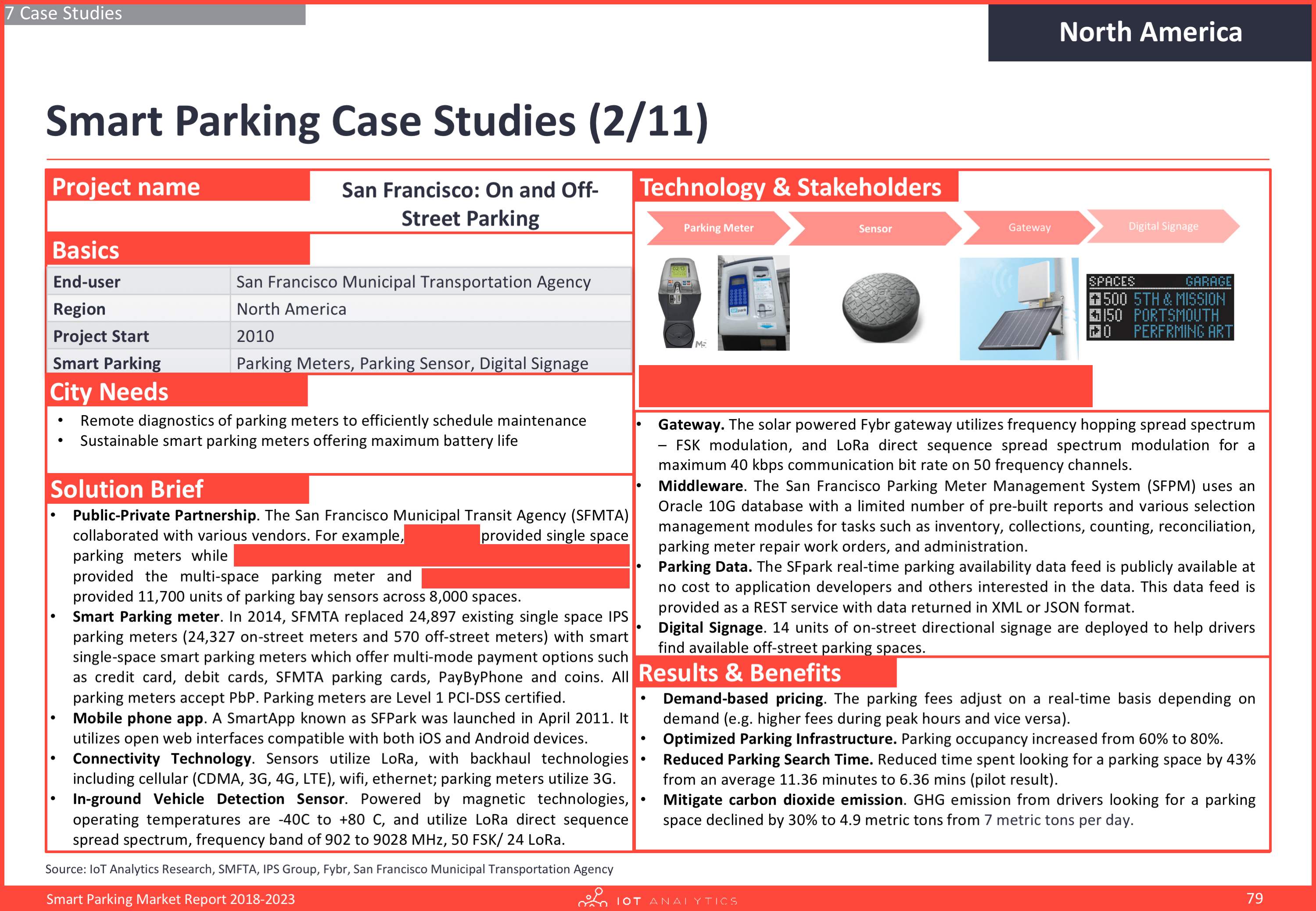Description
Smart Cities Report Series: Smart Parking Market Report 2019-2023
The Smart Parking report is part of a larger effort of mapping global Smart City initiatives such as smart mobility, connected streetlights, smart waste management, environmental monitoring, citizen engagement, and others.
Read the corresponding blog post here.
Find out:
- How big the smart parking market is currently and how fast the market is growing
- How the market revenue is developing across 4 regions APAC, Europe, North America, and Rest of World
- How smart parking solutions are being implemented today (list of 90+ real-world deployments + 10 case study deep-dives)
- The technology segmentation of smart parking solutions and their main elements
- The connectivity technologies that are dominating the smart parking market
- Which company is leading the smart parking market and the corresponding market share of the leaders
- What the current main trending topics are affecting the smart parking market
- What the main challenges and barriers to adoption are
- And more
Available pricing plans:
See Terms & Conditions for license details.
Single User License
Market Report Single User License- 1 Named user (in your organization within the country of purchase)
- Complete market report in PDF
- 20+ Market model data sets in EXCEL
- List of 90+ smart parking projects in EXCEL
- Complete market report in PPT
- 1 hr discussion with the analyst team
Team User License
Market Report Team User License- 1-5 Named users (in your organization within the country of purchase)
- Complete market report in PDF
- 20+ Market model data sets in EXCEL
- List of 90+ smart parking projects in EXCEL
- Complete market report in PPT
- 1 hr discussion with the analyst team
Enterprise Premium License
Market Report Enterprise Premium User License- Unlimited users (in your organization within the country of purchase)
- Complete market report in PDF
- 20+ Market model data sets in EXCEL
- List of 90+ smart parking projects in EXCEL
- Complete market report in PPT
- 1 hr discussion with the analyst team
At a glance:
Parking and traffic congestion are constant sources of frustration for drivers, merchants, employers and governing bodies of municipalities in cities worldwide.
Consequently, smart parking solutions have become a top priority for public officials and parking agencies with many smart city projects around the world incorporating a smart parking element. Whether its sensors embedded in the ground, cameras mounted on light poles or building structures, real-time digital signage, tailored navigation or innovative payment methods through mobile apps smart parking is being increasingly rolled out in real-world deployments.
A range of IoT sensing technologies exist that are used to determine whether parking spaces are occupied or available. This occupancy data is routed wirelessly to a gateway and relayed to a central cloud-based smart parking platform where it is combined with data from other sensors to create a real time parking map.
Using their mobile phones to access the map, drivers can find, navigate to and pay for available parking spaces faster and easier instead of blindly searching for available spaces.
On the other side, parking wardens or enforcement officers use the data map to go directly to the parking violations which improves their citation enforcement effectiveness.
Such smart parking solutions are a key enabler to ease traffic congestion, reduce energy consumption and mitigate harmful emissions.
IoT Analytics expects the global Smart Parking market to grow at a CAGR of 14% reaching US$3.8 billion by 2023.
The comprehensive smart parking report, the second in a series of smart city reports, examines worldwide deployment, spending and shipment of smart parking hardware devices, with segmentation analysis by region, technology, and product. Additionally it further examines the market landscape, including a market share analysis of the biggest smart parking players globally and regionally.
Definition used for the Smart Parking report:
Smart Parking is defined as connected parking management solutions deployed on public on-street and/or off-street parking facilities where the occupancy of a parking space is determined by sensing devices such as cameras or sensors embedded in the ground/pavement of individual parking spaces that can feed data to help/direct drivers to find a vacant parking space, and enable remote payments. The smart parking technologies considered include vehicle detection sensors, license plate recognition systems, smart payment infrastructure (e.g. connected parking meters and Pay-by-Phone functionality for paid parking spaces), and IoT platforms which are networked via wireless and wired connections to transmit information to various channels such as mobile applications, web applications and dynamic digital signage.
Note: This report and definition of Smart Parking excludes autonomous parking by self-driving cars.
The Smart Parking report includes a technology breakdown of the stack of a smart parking solution, which can be broken down into 4 major layers (hardware, connectivity, middleware, and applications) and 16 components.
The Smart Parking report includes a a comparative analysis on vehicle detection sensors using 8 metrics including Weather Resistant, Operating Temperature, Ease of Deployment, Intrusive, Detection Range, Detection of Multiple Parking Spaces, Line of Sight, Lighting Condition.
The Smart Parking report includes 20 market analysis charts such as global spending, number of smart parking spaces by region as well as a list of 90+ smart parking deployments from around the world including 10 case study deep-dives.
Selected companies mentioned in the report:
Amano McGann, China Telecom, CivicSmart, Conduent, Chordant, Cleverciti, Flowbird, Huawei, IPS Group, Itron, Kerlink, Libelium, Nokia, Nwave, ParkMobile, Parkopedia, Sigfox, Telensa, World Sensing, among others.
Request sample:
Request a sample of the market report and market model data:


